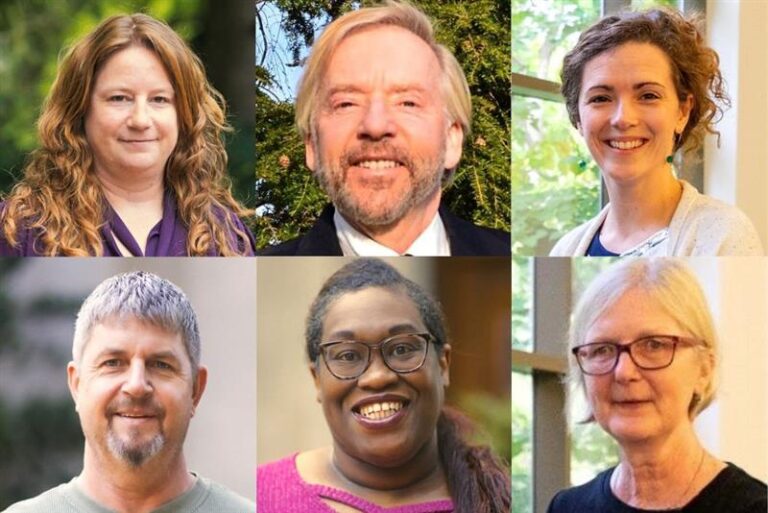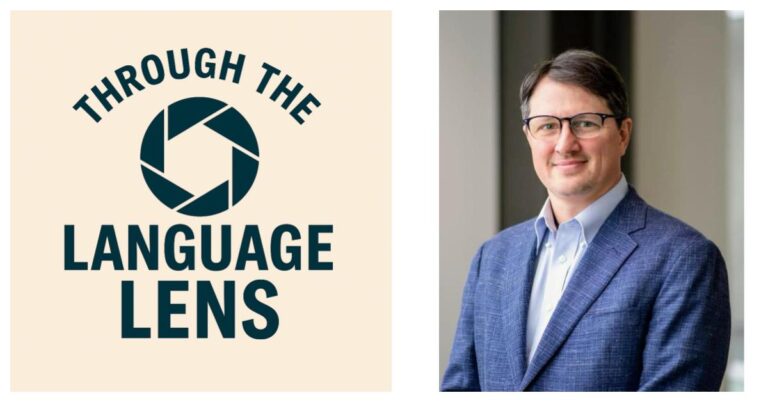
Record-breaking torrential rains and flooding, heat waves, and rising sea levels prompted a renewed urgent focus on a transition away from fossil fuels powered energy production towards cleaner renewable energies. Given these climate and weather-related events and the COP 26 Climate Summit in Glasgow in November, we selected “Climate Change and Multilateralism” as the special theme for our advanced skill building courses (GRM 420 Advanced German and GRM 311 Business German) in Fall 2021.
As climate change presents one of the most urgent strategic challenges for all sectors of the economy (along with employee retention), engaging our students in this topic and having them reflect of personal, business, and civic responsibilities is part of our advanced curriculum. Student research focused on the energy optimization in buildings, biological diversity, species protection, clean water, soil preservation, health, chemical safety, etc. The students presented visualizations of their research in a poster board presentation for which they also earned prizes funded by the German Embassy in Washington.

Sponsored by the German Embassy in Washington, our events featured a digital lecture series with experts on Germany’s environmental efforts and on multilateral initiatives, a discussion of videos on climate change, and a student poster exhibition. Coupled with extensive student research in groups and individually, this effort invited a targeted conversation on and a deeper exploration of the urgent issues surrounding climate change over the course of a semester.
Video: Climate Change Event
As climate change presents one of the most urgent strategic challenges for all sectors of the economy (along with employee retention), engaging our students in this topic and having them reflect of personal, business, and civic responsibilities is part of our advanced curriculum.
Fostering Global Awareness
As part of our strong German Program, which attracts many double majors, we participated in an initiative sponsored by the German Embassy in Washington titled “Time to Act” on the topic “Climate Change: Energy Transition in a Multilateral Environment.” Our students, who will be the global experts, scientists, engineers, politicians, social scientists, and business leaders of the future, are keenly interested in exploring this topic. Their international and humanist education helps to provide them with a broader perspective than their monolingual and -cultural peers.
Change Agents
The programming supports our students as agents of change. Our goal was to raise awareness of the comprehensive model strategy how Germany and the EU are tackling the energy challenge and why both a large-scale multilateral effort and the resolve of the individual consumer are essential for a successful energy transition. As one example, we explored ideas on the city of the future (Die Stadt der Zukunft: https://www.spektrum.de/video/klimawan del-wie-bauen-wir-die-stadt-derzukunft/1738362).
Virtual Expert Talks
With the help of the embassy staff and that of the Böll Foundation we explored what is being done already in Germany. The students addressed the following subtopics: the “Energiewende” exploring existing efforts in renewable resources in Germany, the major multilateral initiatives in the “European Green Deal” in the transition away from fossil fuel powered energy production towards cleaner, renewable energy sources, and finally explored the topic of personal responsibility, what individuals can do to combat climate change.
Pedagogy and Transferable Skills: Student Poster Board Exhibit and Competition
As an important part of the transferable skills our students in German acquire, the visualization of their research in posters is an important aspect of these courses. Students not only produced an individual poster on their research but also group poster. Data visualization and literacy are important competencies that employers value. Sustained group work that produces a concrete deliverable over a certain timeframe is another of the transferable skills honed by our majors and minors.


